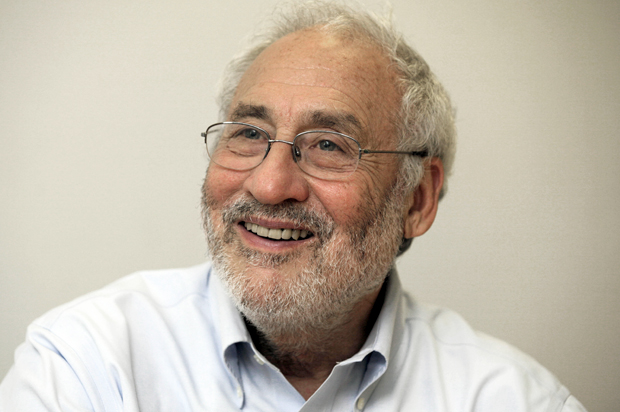
On April 29, 2015, Elias Isquith writes on Salon:
During the long run-up to officially announcing her second presidential bid, former Secretary of State Hillary Clinton quietly — but not too quietly — reached out to a number of leading progressive economists. Along with experts from some of the biggest unions in the country, the list of Clinton conferees included some of the biggest names in the (small) world of left-wing economics: former Clinton-era Secretary of Labor Robert Reich, for example. Yet out of all the so-called boldfaced names intended to draw lefty wonks’ attention, none inspired more cautious optimism than that of Columbia University professor and Nobel Prize-winning economist Joseph Stiglitz.
In part, that’s because Stiglitz, like his contemporary and fellow Nobel-winner Paul Krugman, is a brilliant economist who proves that, contrary to what many conservatives say, a firm grasp of the dismal science does not inexorably lead to libertarianism. More important, though, was his association with the problem of inequality — both on political and economic grounds. His 2011 piece on inequality for Vanity Fair made a splash (among the types of people who read Vanity Fair); and his 2012 book “The Price of Inequality: How Today’s Divided Society Endangers Our Future” — which is nowavailable in paperback — was an even bigger hit.
Recently, Salon spoke over the phone with Stiglitz about his new book, “The Great Divide: Unequal Societies and What We Can Do About Them,” the roots of inequality, and what he wants to see from the 2016 presidential candidates to prove they’re taking the issue seriously. Our conversation is below and has been edited for clarity and length.
So this book originally came out in 2012, and now it’s 2015. Are you more optimistic now than you were then? Or less?

